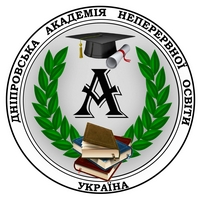ACADEMIC INTEGRITY AS A FORM OF SOCIAL CONTROL: MECHANISMS AND PHILOSOPHICAL FOUNDATIONS
Abstract
The article explores the mechanisms and philosophical foundations behind implementing academic integrity as a form of social control. The significance of academic integrity lies in fostering moral responsibility and establishing basic standards of behavior within educational and scientific environments. The author illustrates the connection between Aristotle's ethics of the good, Immanuel Kant's autonomous ethics, and Hans Jonas's ethics of responsibility in contemporary models of academic integrity. It is demonstrated that academic integrity functions through both internal mechanisms (self-control) and external mechanisms (monitoring) and is an essential component of the institutional framework. This perspective resonates with Michel Foucault's ideas about social institutions serving as disciplinary mechanisms that influence human behavior through oversight and sanctions. Rules, standards, and codes of ethics are vital normative tools for implementing academic integrity policies. The effectiveness of social control in the form of approval or support, which plays a motivational role in decision-making by members of the academic community, is proved. It is highlighted that integrity is based on conscious self-reflection and a commitment to ethical action; however, it is equally important to promote social, moral, and value-based models of virtuous behavior. Given that academic integrity is shaped by social norms and community expectations, the necessity of building a system of sustainable academic traditions arises. Adhering to the principles of academic integrity fosters order in educational institutions and scientific communities. However, its effectiveness hinges on the balance between external influences and internal ethical beliefs as mechanisms of both formal and informal social control. The crucial roles of trust and responsibility in upholding academic integrity are emphasized. The individual responsibility of each member of the academic or scientific community is a consequence of shared trust and establishes an obligation to act with integrity not only in personal decisions but also in the long-term preservation of common standards of activity.
References
2. Бойченко М. Гідність, цілісність і успішність: академічні та громадянські чесноти. Філософська думка. 2014. № 5. С. 110–122.
3. Бойченко М. Інституційні засади академічної доброчесності: філософсько-правова концептуалізація. Філософія освіти. Philosophy of Education. 2019. № 24 (1). С. 97–114. DOI: 10.31874/2309-1606-2019-24-1-97-114
4. Жулай В. Подієвість і моральність: проблеми самоздійснення людини в сучасному світі: наукова монографія. Київ: Наукова столиця, 2023. 160 с.
5. Йонас Г. Принцип відповідальності. У пошуках етики для технологічної цивілізації / пер. з нім. Київ: Лібра, 2001. 400 с.
6. Зінченко В. Екзистенційно-діалогічна модель філософії освіти: освітньо-виховна та соціально-духовна комунікація у контексті суспільного розвитку. Філософія освіти. Philosophy of Education, 2018. № 1 (22). С. 115–133. DOI: 10.31874/2309-1606-2018-22-1-115-133
7. Калиновський Ю. Академічна чесність як чинник правового виховання студентської молоді. Гілея: науковий вісник. 2012. Вип. 63 (№ 8). С. 477–482.
8. Кант І. Критика практичного розуму / пер. з нім. І. Бурковського; наук ред. А. Єрмоленко. Київ: Юніверс, 2004. 240 с.
9. Макінтайр Е. Після чесноти: Дослідження з теорії моралі / пер. з англ. Київ: Дух і літера, 2002. 436 с.
10. Тицька Я. «Академічна доброчесність» та «академічна відповідальність» у забезпеченні якості освіти. Підприємництво, господарство і право. 2018. Вип. 11. С. 192–195.
11. Фуко М. Наглядати й карати. Київ: Основи, 1998. 416 с.
12. Хамітов Н. Академічна доброчесність як виклик, вимога і воля: контексти філософської антропології, етики й філософії освіти. Філософія освіти. Philosophy of Education. 2023. № 29 (2). С. 27–47. DOI: 10.31874/2309-1606-2023-29-2-2
13. Barnhardt B. The «Epidemic» of cheating depends on its definition: A critique of inferring the moral quality of «Cheating in any form». Ethics and Behavior. 2016. № 26 (4). P. 330–343. DOI: 10.1080/10508422.2015.1026595
14. Bretag T., & Green M. The role of virtue ethics principles in academic integrity breach decision-making. Journal of Academic Ethics. 2014. № 12 (3). P. 165–177. DOI: 10.1007/s10805-014-9209-z
15. Fukuyama F. Trust: the Social Virtues and the Creation of Prosperity. N. Y.: Free Press Paperback, 1995. 457 р.
16. Jamieson S., Howard R. M. Rethinking the relationship between plagiarism and academic integrity. Revue internationale des technologies en pédagogie universitaire / International Journal of Technologies in Higher Education. 2019. Vol. 16. № 2. P. 69–85.
17. Luhmann N. Trust and Power. N. Y.: John Wiley & Sons, 1979. 208 p.
18. Maruca L. Plagiarism and its (Disciplinary) Discontents: Towards and Interdisciplinary Theory and Pedagogy. Issues in Integrative studies. 2006. № 21. P. 74–97.
19. McCabe D. L., Trevino L. K. and Butterfield K. D. Academic Integrity in Honor Code and Non-Honor Code Environments: A Qualitative Investigation. Journal of Higher Education, 1999. Vol. 70. № 2. Р. 211–234.
20. Pavela G. Applying the Power of Association on Campus: A Model Code of Academic Integrity. Journal of College and University Law, 1997. Vol. 24. Р. 97–118.

 ISSN
ISSN  ISSN
ISSN 

